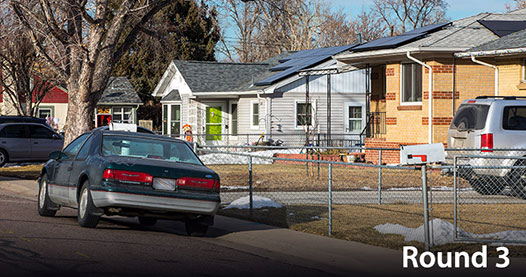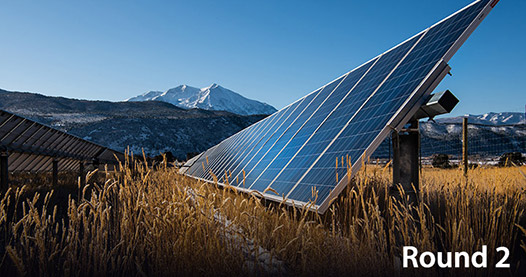Solar Energy Innovation Network
The Solar Energy Innovation Network (SEIN) provides technical assistance and analytical support to help multistakeholder teams from rural and urban areas develop transformative approaches to adopting solar energy.
SEIN seeks to overcome barriers to solar adoption by connecting teams of stakeholders that are pioneering new ideas with the technical expertise they need to succeed. Teams develop their ideas in real-world contexts, yielding results that reduce barriers to affordable and reliable solar energy.
Teams that participate in SEIN receive support from U.S. Department of Energy (DOE) national laboratories and participate in peer-to-peer learning with others who are tackling similar challenges. These teams are developing and documenting their solutions for solar adoption with scale in mind, so others can adapt those solutions to their own contexts.
Topics by Round
SEIN has completed three rounds. Each round brings together new teams to address specific topics.
Solar Community Assistance for Local Energy
NLR offers targeted analytical support to help organizations adopt and apply insights developed through the Innovation Network. Learn more about technical assistance and apply.
Publications
Visit the SEIN publications page to browse publications from all rounds of the Solar Energy Innovation Network.
Program Structure
Multistakeholder teams are grouped into cohorts based on shared challenges and goals. Teams receive direct funding, analytical support from NLR and other expert partners, and facilitation support.
Through coordinated engagement at multiday working sessions spread across 18 months, teams also work together to identify local and regional benefits and barriers, formulate and test innovations, and validate new models. Sustained interaction with other teams creates a valuable platform for ensuring a team's solutions benefit from lessons learned elsewhere and are devised in ways that maximize replicability. Insights and results from the program are shared at a symposium for each round, through NLR publications, and on this website.
SEIN is funded by the DOE Solar Energy Technologies Office and is led by NLR.
Contact
Please direct questions to the Solar Energy Innovation Network team.
NLR will use your information to send timely news or event information to your inbox for as long as you are subscribed. Change your mind at any time by clicking the unsubscribe link in the footer of any email you receive from us. We will treat your information with respect. Learn more about NLR's security and privacy policies.
Share
Last Updated Dec. 5, 2025



